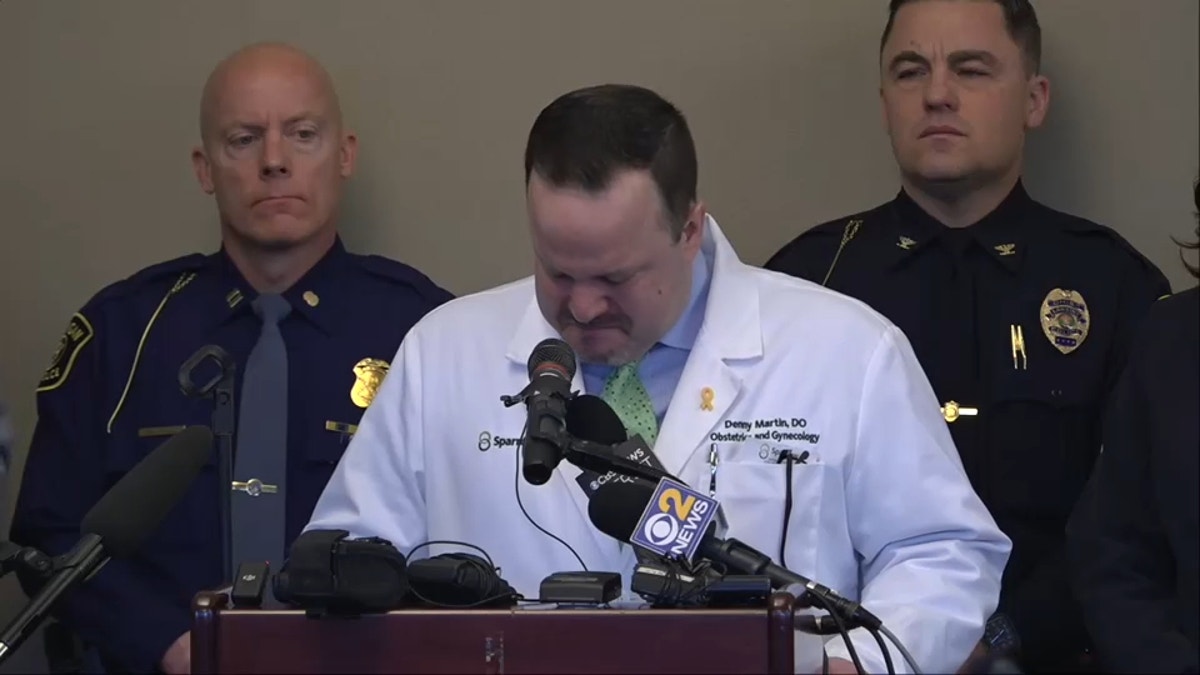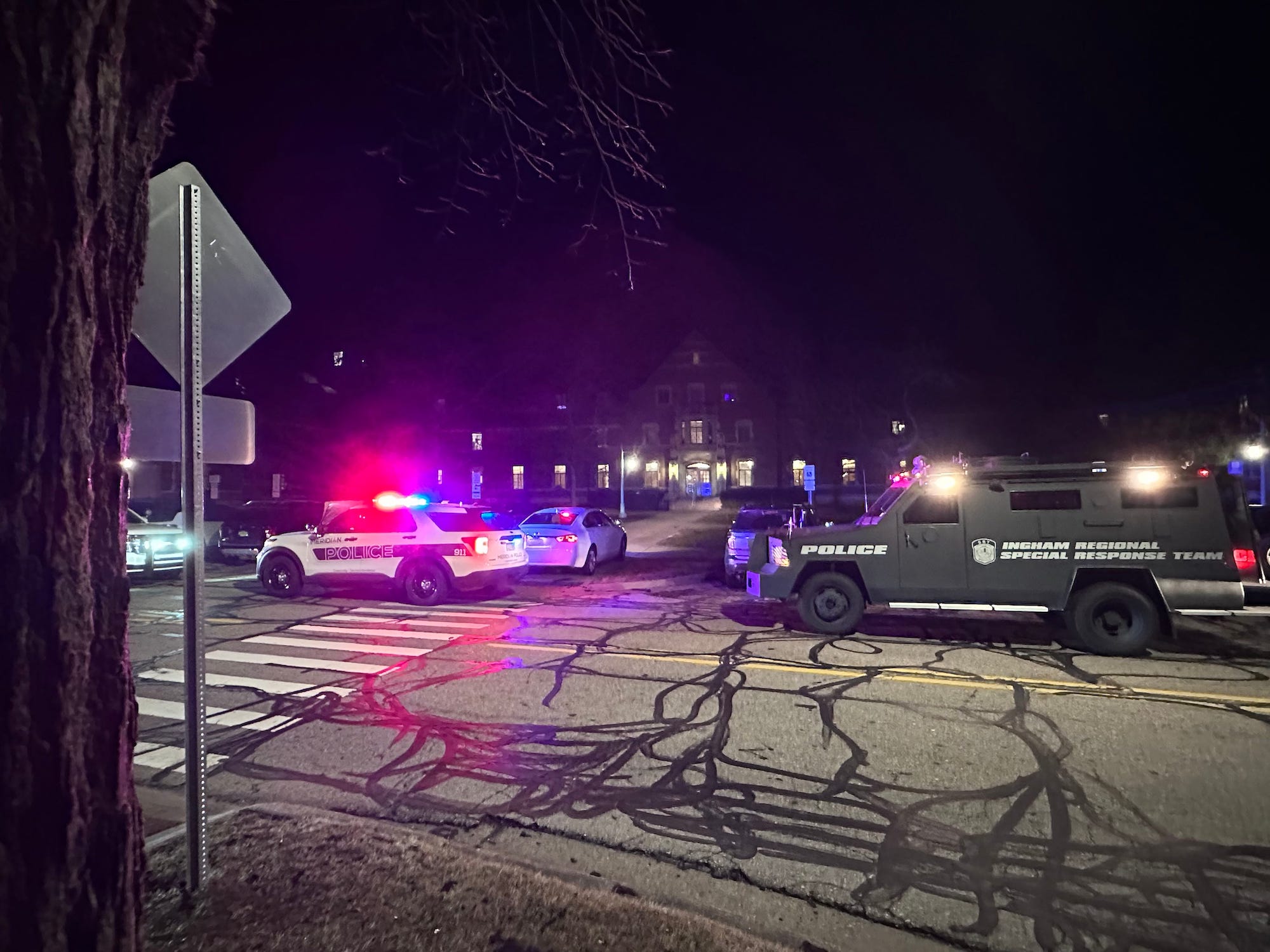Police Responding To Active Shooter At Michigan Hospital After 'Isolated Incident'
Listen up, folks. This is serious stuff. Active shooter situations are terrifying, and when it happens in a hospital, it takes things to another level. We're diving deep into what happened in Michigan, where police were called in after an isolated incident at a hospital. This is not just another news story—it's a wake-up call for all of us about safety, preparedness, and the importance of staying informed.
Imagine this: you're in a hospital, a place where people go to heal, recover, and get better. The last thing you'd expect is chaos breaking out due to gun violence. But that's exactly what happened in Michigan. The police were alerted to an active shooter situation after what was described as an "isolated incident." Now, we're here to break it down for you, step by step, so you know the facts and understand the implications.
This isn't just about one hospital or one state. It's about understanding the broader issue of gun violence and how it affects our communities. By the end of this article, you'll have a clearer picture of what happened, why it matters, and what steps are being taken to ensure safety in public spaces like hospitals. So, buckle up, and let's dive in.
Read also:Dee Baby The Rising Star In The Music Industry You Need To Know
Understanding the Incident: Police Responding to Active Shooter
Let's start by unpacking the situation. On the day of the incident, police were called to a hospital in Michigan after reports of an active shooter. Now, when you hear "active shooter," it's not just a phrase thrown around lightly. It means someone is actively engaged in killing or attempting to kill people in a populated area. In this case, it was a hospital, a place where people are already vulnerable due to illness or injury.
The police response was swift, as it should be in such situations. Officers arrived on the scene, cordoned off the area, and began their search for the shooter. The priority in these situations is always the same: neutralize the threat, protect the innocent, and preserve life. But what exactly led to this incident, and how did it escalate to this level?
What Happened in Michigan?
Here's the breakdown. The incident began as what authorities described as an "isolated incident." At first, it wasn't clear what had happened or who was involved. But as reports came in, it became evident that someone had opened fire inside the hospital. Witnesses reported hearing gunshots, and panic quickly spread throughout the facility.
The hospital staff, trained in emergency protocols, sprang into action. They initiated lockdown procedures, guiding patients and visitors to safe areas while waiting for law enforcement to take control of the situation. It's a testament to their training and professionalism that they were able to act so quickly in such a high-stress environment.
The Role of Law Enforcement in Active Shooter Situations
When an active shooter situation occurs, law enforcement plays a critical role in resolving the crisis. In Michigan, the police were faced with a unique challenge: securing a hospital, a place filled with patients, staff, and visitors. Their first priority was to ensure the safety of everyone inside the building.
This involves several steps. First, they establish a perimeter to prevent the shooter from escaping or causing further harm. Then, they begin their search for the shooter, often working in teams to cover more ground and respond more effectively. Communication is key in these situations, and officers rely on radios and other tools to stay connected and informed.
Read also:Aundrea Fimbres The Rising Star Whos Making Waves In The Entertainment World
How Police Are Trained to Handle Active Shooters
Police officers undergo extensive training to prepare for active shooter scenarios. This includes tactical training, firearms proficiency, and crisis management. They learn how to assess a situation quickly, identify threats, and make split-second decisions that can mean the difference between life and death.
In the case of the Michigan hospital, the police were able to use their training to great effect. They worked methodically, clearing each area of the hospital until they located the shooter. It's a testament to their skill and dedication that they were able to resolve the situation without further casualties.
Impact on the Community: Aftermath of the Incident
Incidents like this have a profound impact on the community. For the people of Michigan, this was a shocking reminder of the dangers that can exist even in the safest-seeming places. Hospitals are supposed to be sanctuaries of healing, but now they've become another potential target for gun violence.
The emotional toll on those involved cannot be overstated. Patients, staff, and visitors were all affected in different ways. Some experienced fear and anxiety, while others struggled with trauma. The hospital staff, in particular, faced the added pressure of continuing to provide care despite the chaos around them.
Support for Victims and Families
In the aftermath of such incidents, support for victims and families is crucial. Counseling services, support groups, and other resources are often made available to help people process what they've experienced. In Michigan, local organizations and charities stepped up to offer assistance, recognizing the need for community solidarity in times of crisis.
It's also worth noting the role of the media in these situations. While they provide essential information, they must do so responsibly, avoiding sensationalism and respecting the privacy of those involved. This balance is key to ensuring that the story is told accurately without causing further harm.
Preventing Future Incidents: Lessons Learned
Every incident like this offers lessons that can help prevent future occurrences. In Michigan, authorities are reviewing their protocols and procedures to identify areas for improvement. This includes everything from security measures to staff training and emergency response plans.
One of the key takeaways is the importance of mental health support. Many active shooter situations are linked to underlying mental health issues, and addressing these proactively could help prevent tragedies. Communities need to invest in mental health resources and remove the stigma associated with seeking help.
Community Involvement in Safety Measures
Communities also have a role to play in ensuring safety. By staying informed, reporting suspicious activity, and participating in community programs, individuals can contribute to a safer environment. In Michigan, local residents have come together to discuss ways to improve safety in public spaces, including hospitals.
Technology can also play a part. Advances in security systems, surveillance, and communication tools can enhance the ability of law enforcement and hospital staff to respond quickly and effectively in emergencies. It's all about being prepared and having the right tools in place when they're needed most.
Data and Statistics: The Reality of Gun Violence
Gun violence is a major issue in the United States, and incidents like the one in Michigan highlight its prevalence. According to data from the Gun Violence Archive, there were over 600 mass shootings in the U.S. in 2022 alone. These numbers are staggering and underscore the need for action at both the local and national levels.
Hospitals are not immune to this trend. In recent years, there have been several high-profile incidents involving gun violence in medical facilities. This is a concerning development that demands attention and action from policymakers, law enforcement, and the public.
Why Hospitals Are Vulnerable
Hospitals are vulnerable targets for several reasons. They are often large, open spaces with many entry and exit points, making them difficult to secure. Additionally, they house a wide range of people, including those who may be emotionally or mentally unstable. This combination of factors creates a perfect storm for potential threats.
Efforts are underway to address these vulnerabilities. Hospitals are investing in security measures, such as metal detectors, surveillance cameras, and security personnel. They're also enhancing staff training to ensure everyone knows how to respond in an emergency.
Legal and Policy Implications
Incidents like the one in Michigan raise important legal and policy questions. What steps can be taken to prevent gun violence in public spaces? How can we balance security with the need for open, accessible healthcare facilities? These are complex issues that require careful consideration and collaboration among stakeholders.
One potential solution is stricter gun control laws. While this is a contentious issue, many experts believe that common-sense measures, such as background checks and red flag laws, could help reduce gun violence. It's a conversation that needs to happen at both the state and federal levels.
Community Advocacy and Activism
Community advocacy and activism can also drive change. By raising awareness, organizing events, and lobbying lawmakers, citizens can push for policies that prioritize safety and security. In Michigan, local groups have already begun organizing to demand action on gun violence prevention.
It's important to remember that change doesn't happen overnight. It requires sustained effort and commitment from everyone involved. But with the right approach, progress is possible, and lives can be saved.
Conclusion: Moving Forward Together
As we reflect on the incident in Michigan, it's clear that there's much work to be done. Active shooter situations in hospitals are a grim reality that no one wants to face, but by learning from these events, we can take steps to prevent them in the future. It's about preparation, education, and community involvement.
So, what can you do? Start by staying informed. Follow developments in gun violence prevention and support organizations working to make a difference. Share this article with your friends and family to keep the conversation going. And most importantly, remember that every voice matters in the fight for a safer world.
Together, we can make a difference. Let's honor the victims of these tragedies by taking action to ensure that no one else has to experience the same pain and suffering. The road ahead won't be easy, but with determination and unity, we can build a brighter, safer future for all.
Table of Contents
- Understanding the Incident: Police Responding to Active Shooter
- What Happened in Michigan?
- The Role of Law Enforcement in Active Shooter Situations
- How Police Are Trained to Handle Active Shooters
- Impact on the Community: Aftermath of the Incident
- Support for Victims and Families
- Preventing Future Incidents: Lessons Learned
- Community Involvement in Safety Measures
- Data and Statistics: The Reality of Gun Violence
- Why Hospitals Are Vulnerable
- Legal and Policy Implications
- Community Advocacy and Activism


